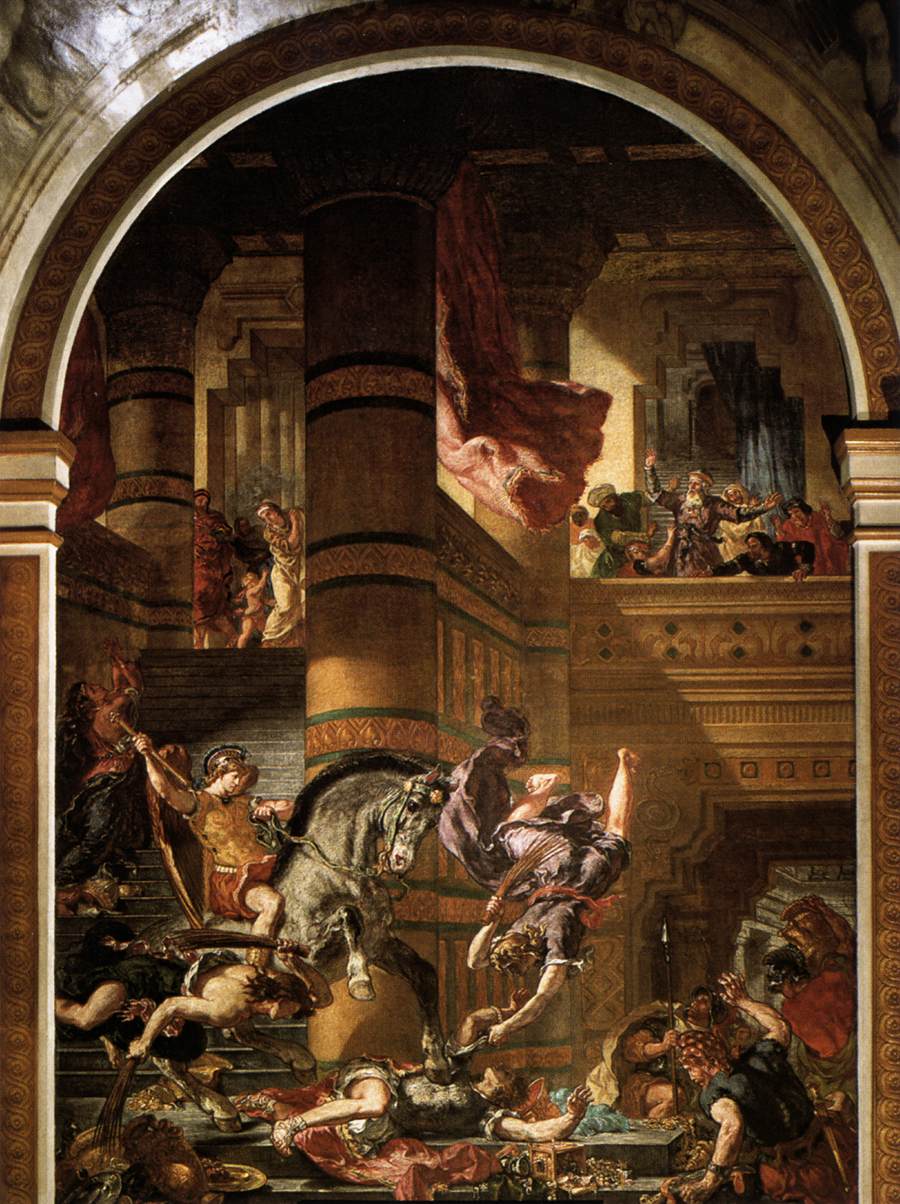Description
The painting Heliodoros Driven from the Temple, created by the French artist Eugène Delacroix in 1854, is a masterpiece of French Romanticism. The painting, which measures 751 x 485 cm, depicts an episode from the life of the Jewish king Seleucus IV, who, according to the biblical story, tried to loot the Temple of Jerusalem.
The painting is full of movement and drama, with energetic and expressive figures that appear to be in constant motion. Delacroix's artistic style is characterized by his use of color and light to create a sense of intensity and emotion. The composition of the work is complex, with a large number of figures and elements in the foreground and background, creating a sense of depth and perspective.
The use of color in the painting is impressive, with a wide range of hues ranging from dark and earthy to bright and vibrant. Warm, golden tones dominate the work, creating a feeling of light and warmth in the midst of the action.
The history of the painting is interesting, as it was commissioned by the French government to decorate the Chapel of the Angels in the Saint-Sulpice church in Paris. The work was received with mixed reviews at the time, but today it is considered one of the most important works of Delacroix and of French Romanticism.
A little-known aspect of the work is that Delacroix was inspired by an earlier painting by the Italian artist Raffaello Sanzio, depicting the same biblical episode. Delacroix took the idea of composition and action from Raphael's work, but put his own personal spin on it with his style and use of color.
In short, Heliodoros Driven from the Temple is an impressive work that stands out for its art style, composition, color, and drama. The history and little-known aspects of the work make it even more fascinating and valuable.

